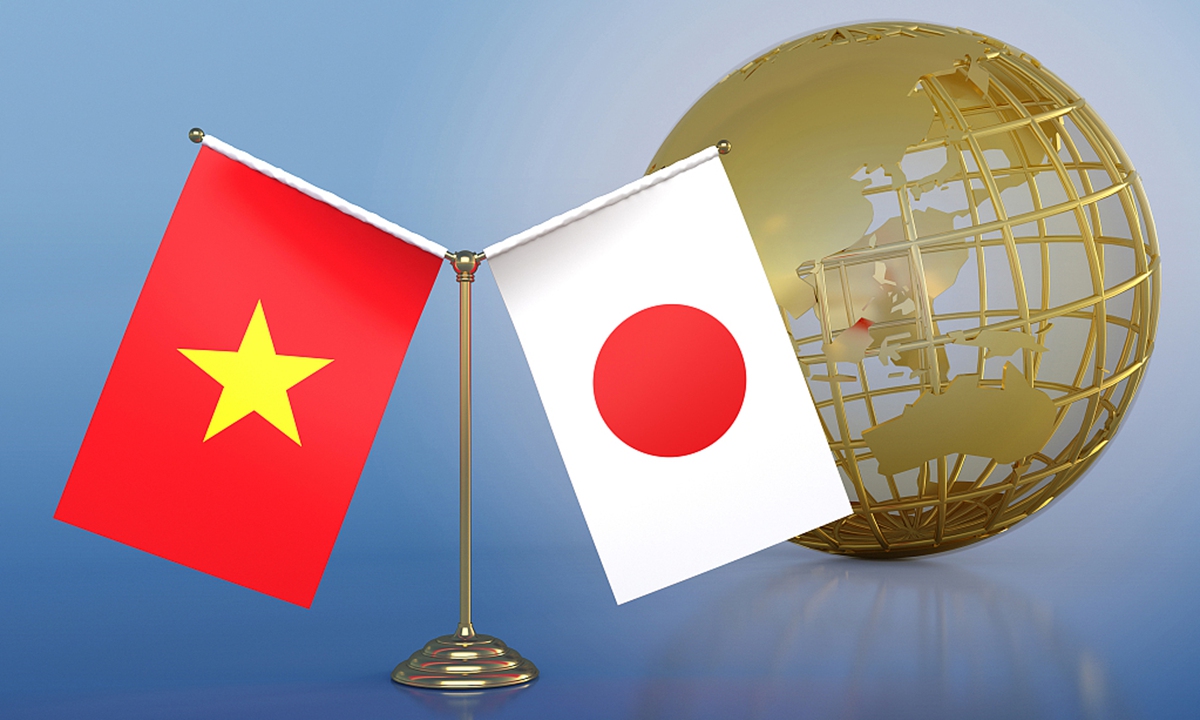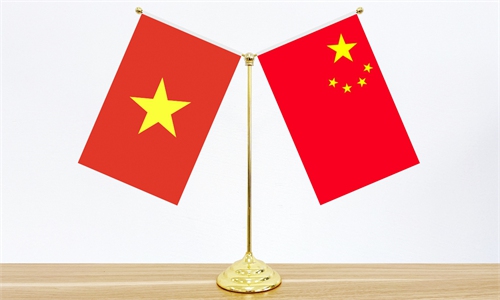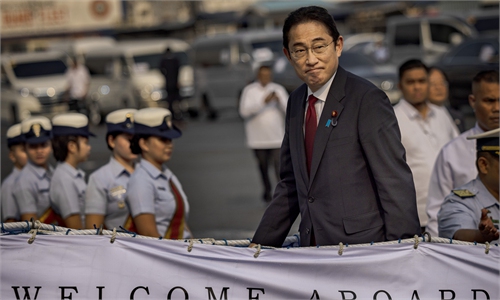
The national flags of Vietnam and Japan Photo: CFP
Vietnam and Japan on Monday officially upgraded their relations to a "comprehensive strategic partnership" during a visit by Vietnamese President Vo Van Thuong to Tokyo. Reuters hyped that this move underlined Vietnam's increasingly strategic role as an important link in global supply chains amid trade tension between China and the West, which is helping shifting foreign investment to the Southeast Asian country from China. Western media reports also highlighted that both Vietnam and Japan are embroiled in separate maritime disputes with China. Their intentions to take the opportunity to drive a wedge between China and Vietnam and exaggerate Vietnam's "hostilities" toward China are too self-evident.
The elevation of relations between Japan and Vietnam is influenced by considerations in diplomacy, economy, and geopolitical strategy. From Japan's perspective, it is evident that Tokyo aims to turn Vietnam into a close diplomatic partner and a pivotal node in building new industrial and supply chains economically. This underscores Vietnam's crucial role in facing what the West perceives as future challenges related to China's industrial structure and threats.
From Vietnam's viewpoint, while Hanoi isn't eager to be entangled in the US and Japan's containment of China through industrial and supply chains, it is willing to leverage the power of the US and Japan to indirectly strengthen its economic position and shape the industrial supply chain.
Countries like the US and Japan have long sought to lure Vietnam to serve as a pawn in the process of containing China. However, for Vietnam, wanting to upgrade ties with Japan doesn't necessarily mean direct conflict with China. Prime Minister Pham Minh Chinh affirmed that Vietnam and China are both comrades and brothers on November 25.
Some foreign media outlets seem to exaggerate certain differences in China-Vietnam relations, said Xü Liping, director of the Center for Southeast Asian Studies at the Chinese Academy of Social Sciences. While there are indeed maritime disputes between China and Vietnam, these disputes do not overshadow the overall development of China-Vietnam relations.
In September, Vietnam elevated its bilateral relationship with the US to a "comprehensive strategic partnership." This recent elevation in Japan-Vietnam relations could further reinforce the comprehensive layout of the US' Indo-Pacific Strategy. As Japan is a US ally, through the high-level cooperation with Vietnam, Japan aims to bring Vietnam into the sphere of influence of the US, compartmentalizing Vietnam in a small circle and fostering future collaboration with the US and Japan that would be beneficial for their private strategic interests.
For Vietnam, the key is to establish a balanced foreign policy with major powers. As a mature country, Vietnam should develop independent and autonomous diplomacy, rejecting the influence and manipulation of major powers.
It goes against Vietnam's independent diplomatic needs and is inconsistent with Vietnam's role as a key member of the ASEAN with a diplomatic tone of non-alignment if the country takes sides hastily and joins a particular camp to contain a particular country. In line with the concept of "bamboo diplomacy" promoted by Vietnam's General Secretary Nguyen Phu Trong, Vietnam, as a nation with significant status and potential in Southeast Asia, should base its diplomacy on its own interests and engage in flexible and diverse multilateral diplomacy.



